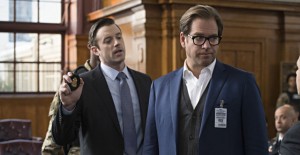Source of article DOAR Litigation Consulting.

In the fourteenth edition of his weekly column in Law360, DOAR’s real-life New York City Jury Consultant and Psychologist reviews the fictional NYC Jury Consultant/Psychologist on the television series “Bull,” focusing on what litigation is really like in the trenches.
This week, the team is told that they will not be able to hack into computer networks nor can they do anything sneaky, so they will be forced to do jury consulting like us muggles. They do not, but that is at least the premise. The Case of the Leaky Soldier In this episode, Bull works in a military court, and must adjust to very different rules. He defends a soldier accused of leaking classified documents to a radical news website. In order to work on the case, Benny the attorney is given security clearance and is shown the classified document, but is told not to divulge its contents in open court. In the usual elliptical storytelling on the show, confusing things happen that are hard to recap logically in the light of day (It’s the show’s fault!). For instance, Bull inexplicably (see?) goes behind Benny’s back and secretly tells the defendant that she should blurt out the classified information. In court, Benny realizes that she is about to do this, so he instead jumps in and yells out the classified information first. He is then taken into custody by the FBI in front of the jury of soldiers. Benny and Bull later have the big impassioned argument that has become a trope of the show in which Bull does something cruel to a member of his staff (see, for instance, the cruel cross-examination of Danny a few episodes back), but thinks he is doing it for the person’s own good, and then the person realizes that their over-controlling boss was in fact doing it for their own good and grudgingly makes up with Bull, who the person now admires even more. This time it happens while Bull plays the acoustic guitar. No, really. Because Benny is in the pokey (legal term), Bull teaches the defendant how to make an engaging, persuasive closing argument for herself. As it just so happens, she thinks the defendant is innocent. Throughout, because of concerns that the military, the government and the FBI will be watching them, the TAC team decides that they should not do anything illegal like surveil jurors and hack nonpublic information. This causes great consternation, particularly from Cable, who looks appalled at being handed a legal pad (millennials, right?). It looks for a moment like they will do low-tech, ground-game jury consulting like us little people, but despite this, they still create computer models of juror’s souls and have microphone feeds into Bull’s ear in the courtroom. They then get hacked with a computer worm by the radical website, and Cable gets to use her tech skills on defense. They then get Bull’s only bad verdict since his work on Leopold and Loeb, maybe because the defense lawyer was cuffed in front of the jury of soldiers. (Didn’t think of that, did you, Bull?) Bull, however, manipulates the proceedings so the sentence is minimal, and he trades the website’s computer worm to the government for Benny’s release. (You can see that the show has a mixed view on whistleblowing, so all of the aged CBS viewers can be happy before Rascal-scootering toward the light). The defendant, like the people in every other episode, tells Bull that maybe Bull’s ways are not so bad after all, which came close to waking me. Is That What Jury Consulting is Like? In this case, Bull is only allowed one peremptory challenge. To make things worse, he is not able to get fed streams of information from the TAC office based on a mirror jury. This jury selection situation is similar to the limits of voir dire in the standard federal court scenario in that other show: Real life. In federal court, one is limited to three peremptory strikes, and the questioning of jurors is briefly done by the judge. Live Juror Internet Searching Judges, however, are increasingly open to consultants doing very quick, live searches of jurors with significant constraints, such as, one cannot contact a juror or leave any trail that alerts a juror that one has visited their website or looked at their LinkedIn profile. This type of live juror searching is becoming a routine addition to voir dire practice. It can be helpful to locate extreme outlier views of some jurors that might not otherwise come up in limited voir dire. Reading Juror Behavior It remains up to the consultants and attorneys to try to read more live information in the courtroom to get an understanding of the fuller lives of each juror. I, for instance, use my skills as a clinical psychologist to read into the behaviors of the jurors in the small amount of social interactions we see in the courtroom, making analytic mountains out of the molehills of small amounts of social information exhibited. In this episode, for instance, Bull observes that one potential juror has more leadership tendencies than another which could be used to sway other jurors during deliberations. This is an important element to examine in jurors if possible. I often use jurors’ interactions with the judge to see how strongly or meekly they respond to authority to get an understanding of this personality dimension. To learn more about what information can be gleaned in court, here is more guidance on how to outthink one’s opposing counsel. But enough helpful technical guidance. Next week, more flat out snottiness, mostly toward the elderly. The post Talking Bull, Episode Fourteen, A Real Jury Consultant Watches a Fictional One appeared first on DOAR.

